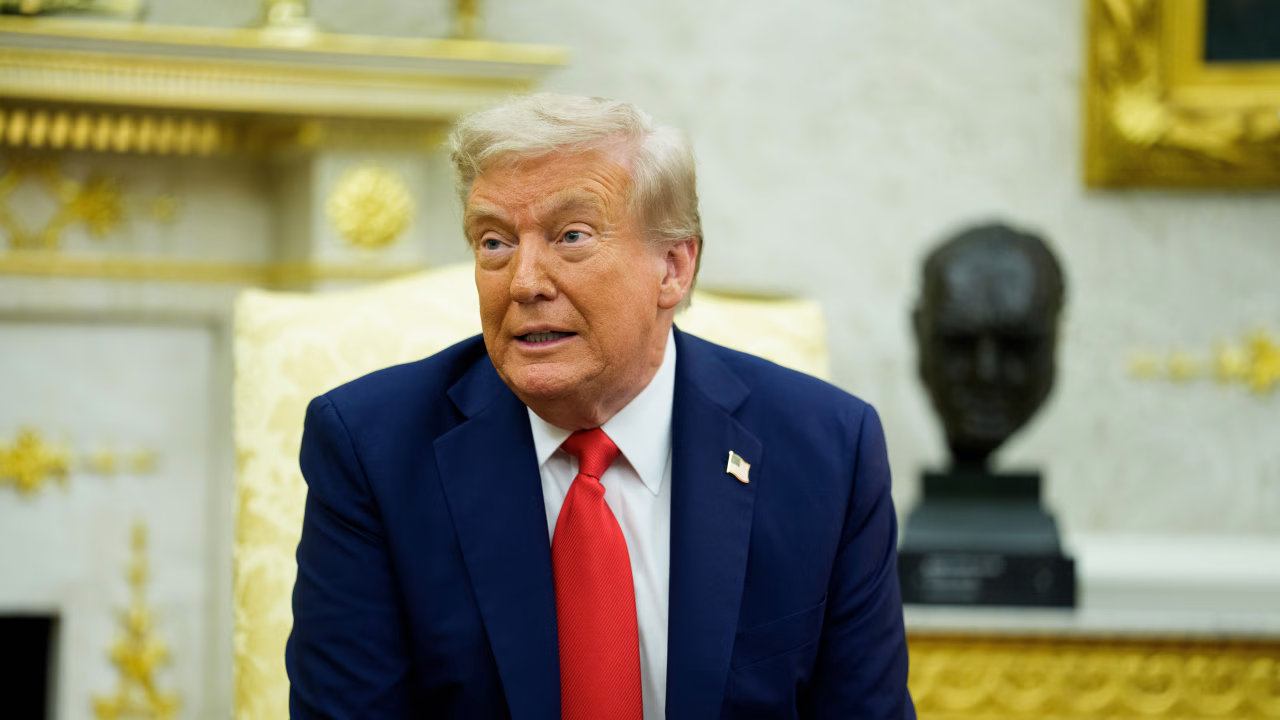On August 21, 2025, the U.S. legal and political landscapes shifted dramatically when a New York appellate court overturned a $500 million civil fraud penalty against former President Donald J. Trump and his organization.
The ruling marks a pivotal moment in a long-running legal battle between New York’s Attorney General and Trump’s business empire. While the court upheld findings of fraud, it concluded that the half-billion-dollar penalty violated the U.S. Constitution’s Eighth Amendment, which prohibits excessive fines.
This decision has sparked widespread debate among legal experts, political analysts, and business leaders. Supporters of Trump hail it as a major victory, while critics argue that accountability has been diluted. In this comprehensive analysis, we’ll explore the case’s background, the court’s reasoning, potential consequences, and what lies ahead.
The Origins of the Case: How It All Began
In September 2022, New York Attorney General Letitia James filed a civil lawsuit against Donald Trump, his company, and several executives. The lawsuit alleged that the Trump Organization inflated property valuations to secure favorable loans, reduce insurance costs, and obtain tax benefits.
The accusations centered on years of financial statements that, according to investigators, overstated Trump’s net worth by billions of dollars. Properties like Trump Tower, Mar-a-Lago, and several golf courses were allegedly valued far above their actual market worth.
In February 2024, Judge Arthur Engoron ruled against Trump and imposed a $354.8 million disgorgement penalty, which, with accrued interest, ballooned to over $500 million.
At the time, Engoron declared:
“The defendants engaged in persistent fraud. The penalty reflects the seriousness of their conduct and serves as a deterrent to similar actions in the future.”
Trump immediately appealed the ruling, calling the case a “witch hunt” and arguing that the fine was grossly excessive and politically motivated.
The Appeals Court’s Groundbreaking Decision
Fast forward to August 21, 2025 — the New York Appellate Division issued a 323-page decision overturning the $500 million penalty. The judges unanimously agreed on one crucial point: the financial sanction was unconstitutional.
Key Findings of the Court
Fraud Finding Upheld
The court maintained that Trump and his organization did misrepresent property values. However, the judges ruled that the penalty imposed by the lower court far exceeded reasonable limits.
Eighth Amendment Violation
The appeals panel found that the fine violated the Constitution’s prohibition on “excessive fines.” The ruling emphasized that penalties must be proportionate to the unlawful gains.
Non-Monetary Penalties Remain
While the monetary judgment was overturned, restrictions still apply:
Trump faces a three-year ban from serving as an officer or director of any New York-based company.
His sons, Donald Jr. and Eric, face two-year leadership bans.
An independent compliance monitor continues overseeing the Trump Organization’s finances.
The court made it clear: this is not a total exoneration. Trump avoided the financial blow, but the fraud ruling still stands.
What This Means for Trump Politically and Financially
The decision is a significant relief for Trump’s financial standing and his political prospects. Facing several other legal battles, a $500 million payment could have severely strained his resources, particularly as he campaigns for another presidential bid in 2028.
However, it’s not an outright victory:
The faud label remains attached to his business empire.
Leadership bans limit his direct control over core assets.
The ruling is subject to further appeal by New York’s Attorney General.
For Trump supporters, this ruling is fuel for his long-standing narrative that legal actions against him are politically motivated. For opponents, it signals a dangerous precedent where wealth and influence can reduce consequences.
A Constitutional Turning Point: The Eighth Amendment at Center Stage
This case carries broader implications for civil penalties in America. Traditionally, the Eighth Amendment is applied in criminal contexts, but the court’s decision extends its reach into civil fraud cases.
Legal scholars note that this sets a new precedent:
Ecessive fines in civil litigation can now be struck down if they’re not proportionate to the proven harm.
State Attorneys General may face greater limitations in imposing massive financial penalties against corporations and individuals.
The ruling raises a critical question: Where is the line between accountability and overreach?
Reactions from All Sides
Donald Trump’s Response
After the decision, Trump declared
“This is a massive victory for justice and common sense. This case was always politically motivated. The court’s decision proves what I’ve been saying all along.”
His legal team echoed this sentiment, celebrating the judgment as a vindication of Trump’s business practices — despite the fraud finding remaining intact.
Attorney General Letitia James’ Statement
AG James, however, expressed strong disagreement:
“The fraud was real, and the court affirmed that. We intend to appeal this ruling and fight to hold the Trump Organization fully accountable.”
Her office has already signaled that it will petition New York’s highest court to reinstate the financial penalty.
Legal Experts Weigh In
Constitutional scholars are divided:
Supporters of the ruling argue it upholds fundamental protections against government overreach.
Critics warn that the decision could embolden wealthy defendants, making it harder for states to impose meaningful penalties for financial misconduct.
The Bigger Picture: Trump’s Legal Battles Aren’t Over
While the $500 million penalty is gone, Trump’s legal troubles are far from resolved. He still faces:
Federal election interference investigations
Multiple defamation lawsuits
Tax-related probes involving other states
This appeals ruling lightens his immediate financial burden, but his overall legal exposure remains significant.
What Happens Next
The legal fight is far from over. The next steps include:
Attorney General’s Appeal
Letitia James is expected to appeal the decision to New York’s Court of Appeals — the state’s highest court.
Potential U.S. Supreme Court Involvement
If constitutional issues remain unresolved, the case could eventually reach the U.S. Supreme Court.
Ongoing Oversight of the Trump Organization
Independent financial monitoring continues, keeping Trump’s businesses under strict scrutiny.
This means the saga could drag on for years, keeping Trump, his finances, and his political future in the headlines.
Storytelling Snapshot: Inside the Courtroom Drama
Imagine the scene: a packed courtroom, cameras flashing, reporters on edge. Judge Engoron’s original half-billion-dollar ruling in 2024 stunned the nation, putting Trump’s empire in peril.
Fast forward to August 2025 — the appeals court delivers a thunderous reversal. Gasps ripple through the gallery. Trump’s lawyers smile. AG James’ team looks defiant.
But this isn’t the end. It’s just another chapter in a high-stakes legal saga that pits one of America’s most controversial figures against the machinery of state justice.
FAQs
Why did the appeals court overturn the $500 million penalty?
The court ruled the penalty was excessive and violated the Eighth Amendment, which protects against disproportionate fines.
Is Trump completely cleared of wrongdoing?
No. The court upheld findings that Trump and his organization committed fraud, but eliminated the financial penalty.
Does Trump still face business restrictions?
Yes. Leadership bans, loan restrictions, and compliance monitoring remain in effect pending further appeals.
Can the decision be reversed?
Yes. New York’s Attorney General plans to appeal to the Court of Appeals and may seek to reinstate the fine.
How does this impact Trump’s political future?
Financially, it’s a major relief. Politically, it boosts his claims of “persecution,” but the fraud label remains, which opponents are sure to exploit.
Conclusion:
The overturning of Trump’s $500 million civil fraud penalty represents more than just a financial reprieve — it’s a defining test of the balance between accountability and constitutional protection
For Trump, the decision removes a crushing monetary threat but leaves a lingering fraud judgment and ongoing legal battles. For the justice system, the ruling sets a powerful precedent for how far courts can go when punishing civil misconduct.
As the case heads to New York’s highest court — and potentially the U.S. Supreme Court — this legal drama promises to remain one of the most consequential courtroom battles in modern American history.













